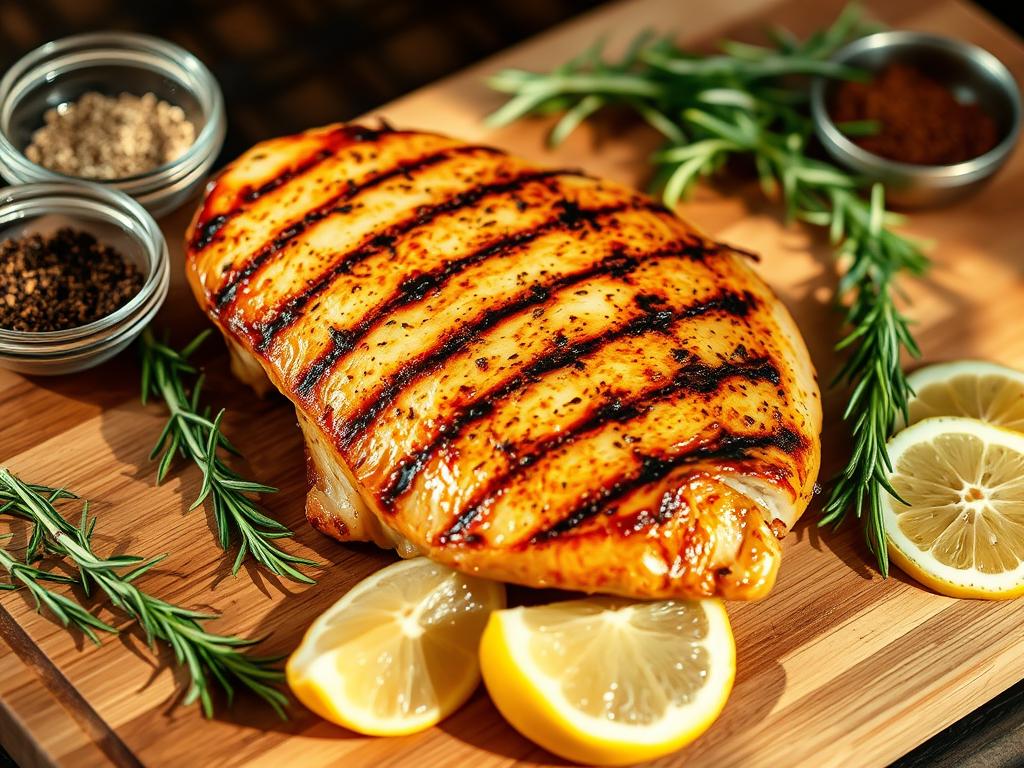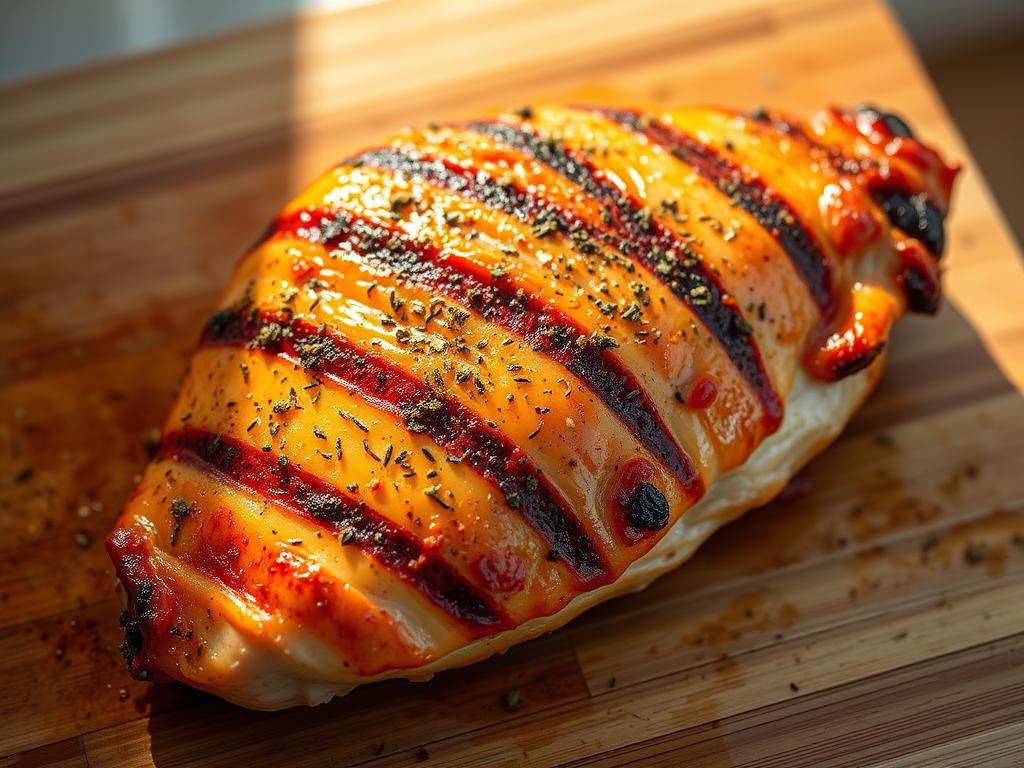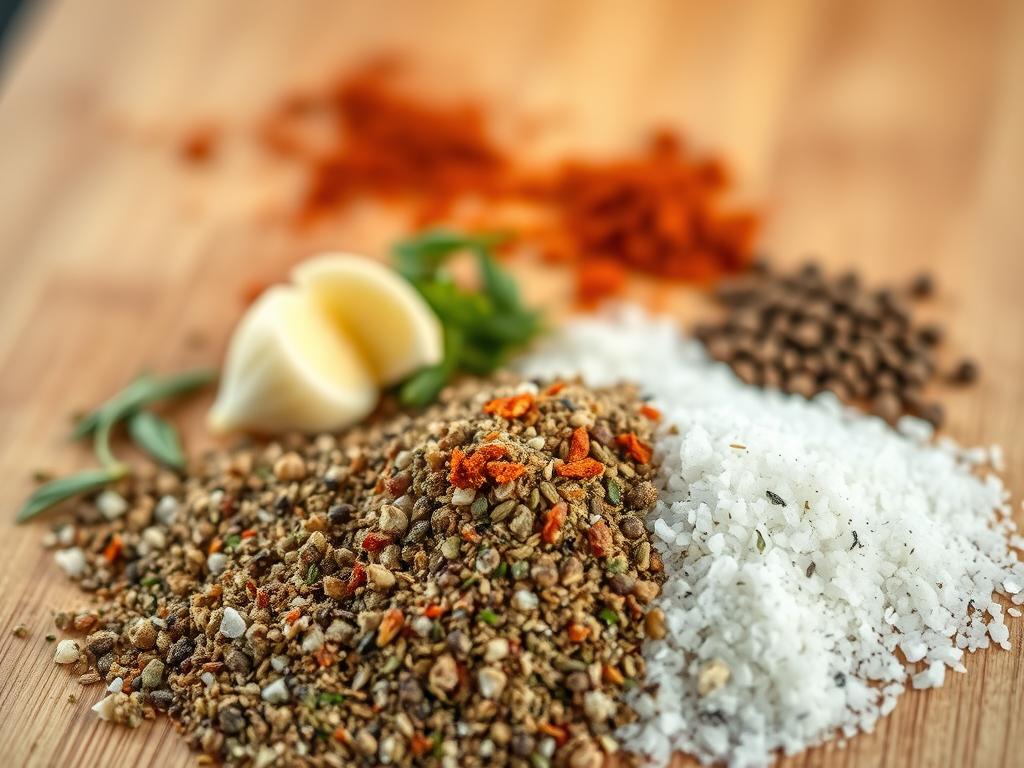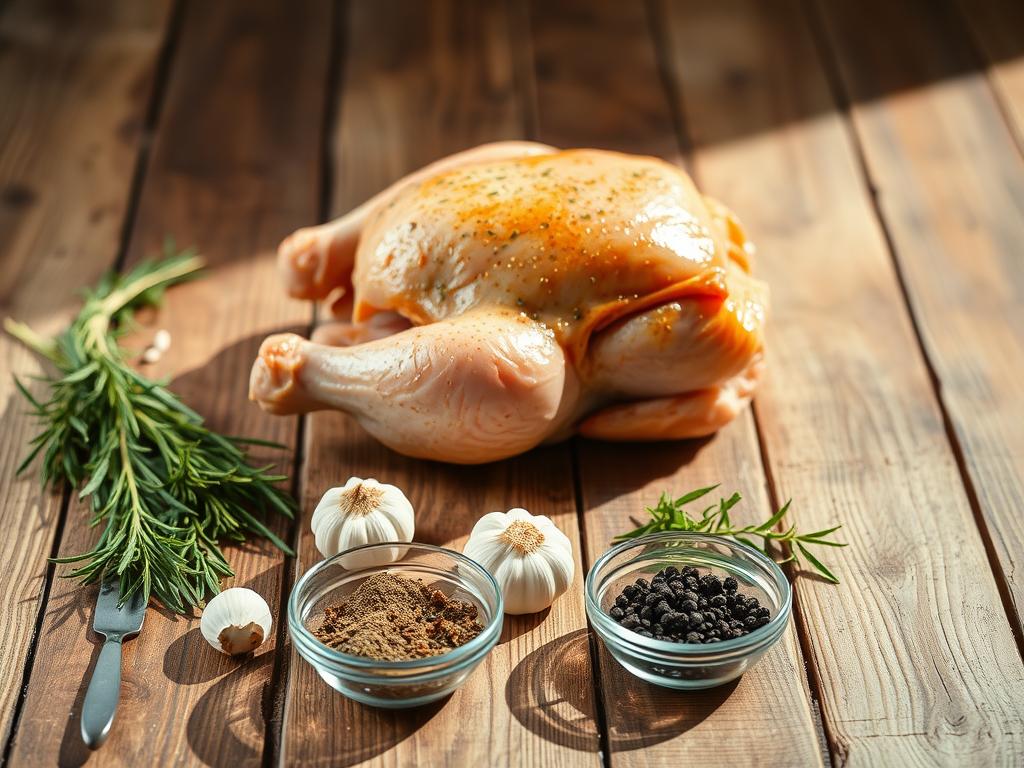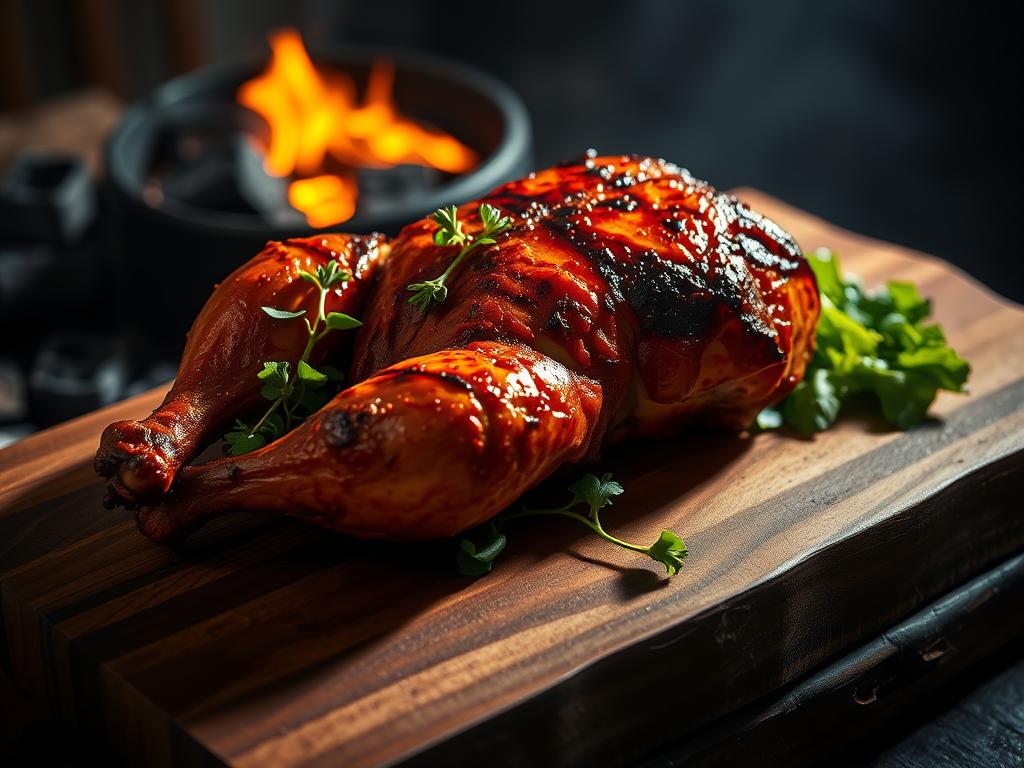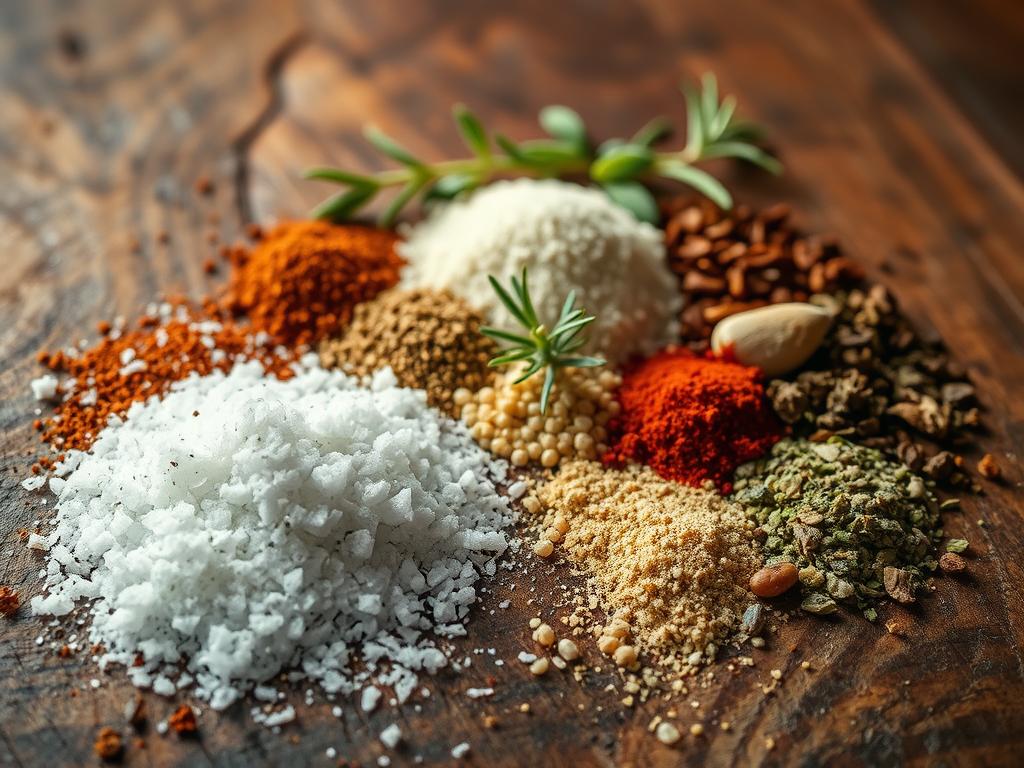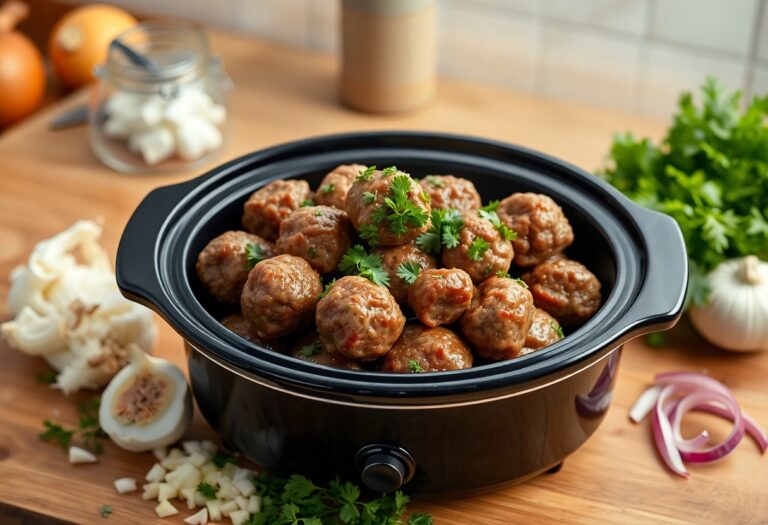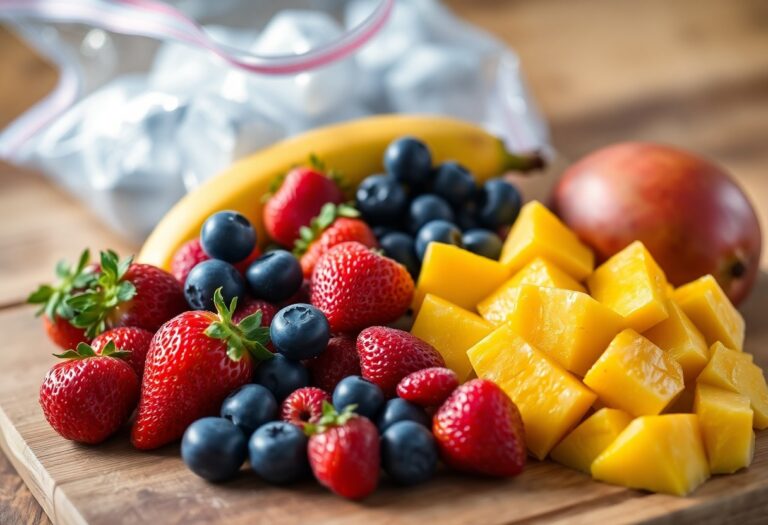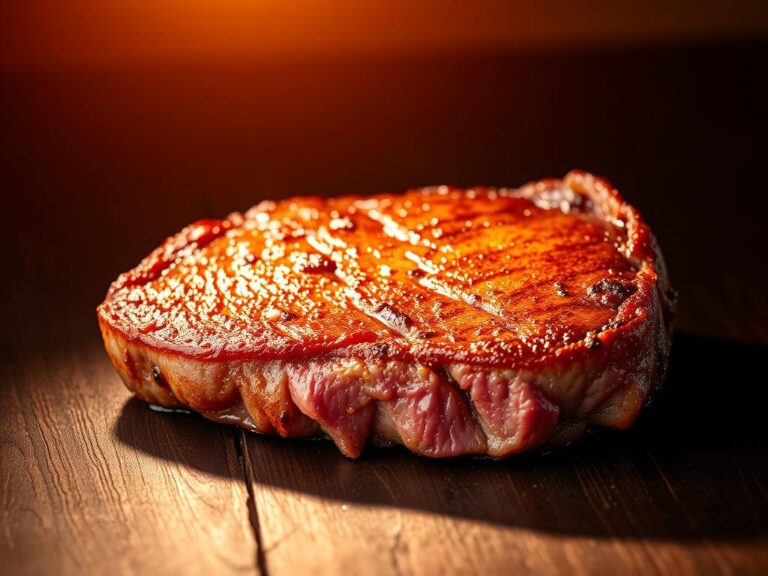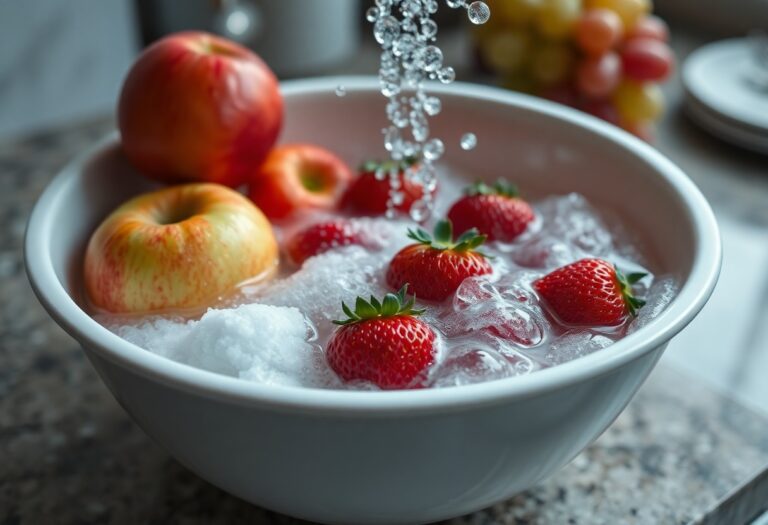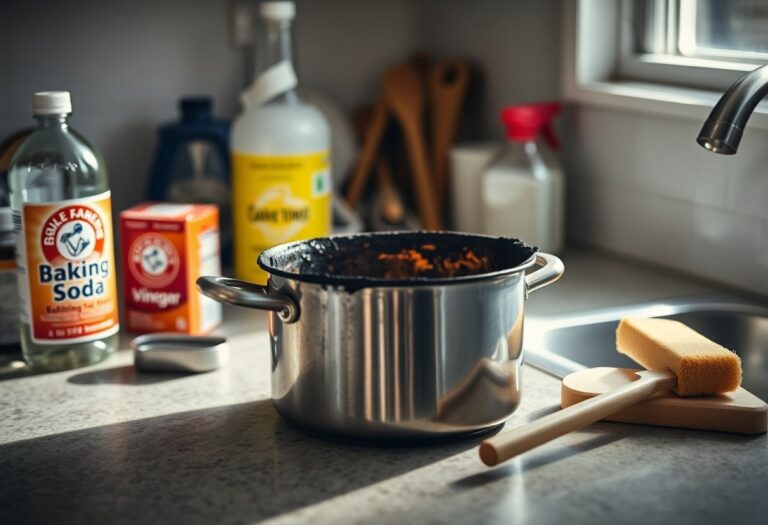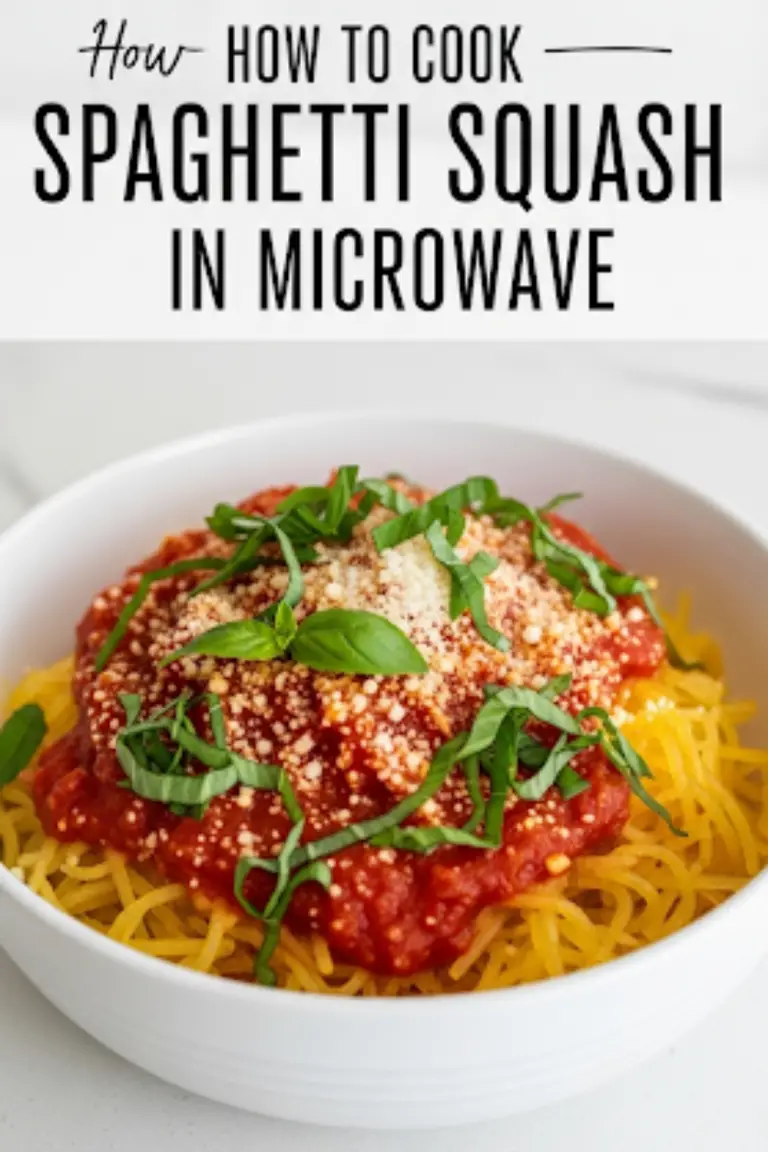How to Season Chicken for Grilling
Grilling can be tricky, especially when it comes to keeping chicken moist and flavorful. Many of us have faced the disappointment of dry, bland results. But with the right techniques, you can transform your grilled chicken into a delicious, crowd-pleasing dish.
Whether you prefer marinades or dry rubs, there’s a method to suit every taste. Pounding the meat ensures even cooking, while heat management prevents overcooking. These simple steps can make a world of difference.
Grilled chicken is incredibly versatile. It’s perfect for salads, sandwiches, or meal prep. Plus, it’s a lean protein that fits into a healthy lifestyle. With make-ahead marinades and freezer storage, you can save time without sacrificing flavor.
Introduction to Grilled Chicken Seasoning
Mastering the art of flavoring poultry starts with understanding the basics. Flavor penetration is key to creating juicy, delicious results. The process involves both surface seasoning and deeper absorption, especially with boneless, skinless cuts like chicken breasts.
Moisture retention can be a challenge with lean cuts. Quick seasoning methods work well for busy cooks, while extended marinating allows flavors to penetrate deeply. Both approaches have their benefits, depending on your time and taste preferences.
Olive oil plays a crucial role in carrying fat-soluble flavors. It helps spices bloom, enhancing their aroma and taste. This is especially important in marinades, where oil acts as a flavor carrier.
Three core methods stand out for preparing grilled chicken: citrus-zest marinade, dry rub, and balsamic glaze. Each offers unique flavor profiles and textures. Lemon zest, for example, adds brightness without compromising the meat’s texture.
Why Proper Seasoning is Key to Grilled Chicken
The secret to juicy, flavorful grilled chicken lies in proper seasoning. It’s not just about adding spices; it’s about balancing acids, salts, and oils to enhance texture and taste. Without the right approach, the meat can end up dry and unappetizing.
Acid balance is crucial. Too much citrus or vinegar can overcook the surface, leaving the inside undercooked. Salt penetration, on the other hand, helps retain moisture and tenderizes the meat. This combination ensures a juicy bite every time.
Proper spice blends also enhance the Maillard reaction, creating a rich, caramelized crust. This reaction occurs when proteins and sugars interact under high heat, adding depth to the flavor. Oil plays a key role here, protecting spices and helping them bloom for maximum aroma.
Studies show that balsamic marinades improve moisture retention by 34%. This makes them a great choice for lean cuts like chicken breasts. By combining the right ingredients and techniques, you can elevate your grilled chicken to a whole new level.
Essential Ingredients for Grilled Chicken Seasoning
The right combination of ingredients can elevate your grilled poultry to new heights. Herbs, spices, and oils work together to create a perfect blend of flavors. Each component plays a unique role in enhancing taste and texture.
Choosing the Right Herbs and Spices
Herbs and spices are the backbone of any seasoning mix. Fresh herbs like rosemary and thyme add earthy notes, while dried spices such as paprika and cumin bring warmth. A balanced blend ensures depth without overpowering the natural flavor of the meat.
The Role of Oil in Seasoning
Oil serves a dual purpose in seasoning. It acts as a flavor carrier, helping spices bloom and penetrate the meat. Additionally, it forms a moisture barrier, preventing dryness during grilling. Six tablespoons of olive oil is a common measurement for marinades, ensuring even coating.
Different oils have unique properties. Extra virgin olive oil (EVOO) has a lower smoke point but adds rich flavor. Avocado oil, with its higher smoke point, is ideal for high-heat grilling. The table below compares these two popular options:
| Oil Type | Smoke Point | Best Use |
|---|---|---|
| Extra Virgin Olive Oil | 375°F | Marinades, low-heat grilling |
| Avocado Oil | 520°F | High-heat grilling |
Understanding the role of fat in seasoning is crucial. It dissolves fat-soluble compounds in spices, enhancing their aroma and taste. This makes oil an indispensable ingredient for both rubs and marinades.
How to Season Chicken for Grilling: Step-by-Step Guide
Achieving perfectly seasoned poultry requires attention to detail and the right techniques. Follow these steps to ensure your dish is flavorful and juicy every time.
Preparing the Chicken
Start by patting the meat dry with paper towels. This helps the seasoning stick better. For even cooking, pound thicker cuts to a uniform thickness. Use a zip-lock bag for easy cleanup and efficient coating.
Creating the Seasoning Mix
Combine herbs, spices, and oil to create a balanced blend. For a quick soak, let the meat sit in the marinade for at least 20 minutes. For deeper flavor, consider an overnight infusion. Vacuum sealing can enhance penetration if you have the equipment.
Applying the Seasoning
Use the double-sided coating technique for rubs to ensure even coverage. If using a marinade, reserve a portion for basting during grilling. This adds layers of flavor and keeps the meat moist. After applying the seasoning, let the meat rest for 10-15 minutes to allow the flavors to meld.
- Quick soak: 20 minutes for busy schedules.
- Overnight infusion: Best for deeper flavor penetration.
- Basting: Use reserved marinade during grilling for added moisture.
- Resting: Let the meat sit post-application for better flavor absorption.
Marinating vs. Dry Rub: Which is Better?
Choosing between marinating and dry rubs can significantly impact your BBQ chicken results. Each method offers unique benefits, depending on your time, texture preferences, and flavor goals.
Marinating involves soaking the meat in a liquid mixture for several hours. This process tenderizes the meat and allows flavors to penetrate deeply. A minimum of 4 hours is recommended for optimal results. On the other hand, dry rubs are instant and create a flavorful crust on the surface.
- Texture: Marinades tenderize the meat, while dry rubs create a flavorful crust.
- Time Efficiency: Dry rubs take just 15 minutes, whereas marinades require at least 4 hours.
- Flavor Intensity: Marinades offer deeper flavor penetration over 24 hours, while dry rubs provide immediate surface flavor.
- Meat Type: Breasts benefit from marinades for moisture, while thighs work well with dry rubs due to their natural fat content.
- Hybrid Approach: A wet rub combines the best of both methods, offering tenderization and a flavorful crust.
For BBQ chicken, the choice depends on your schedule and desired outcome. If time is limited, a dry rub is ideal. For deeper flavor, marinating is the way to go. Experiment with both to find your perfect match.
Grilling Techniques for Perfectly Seasoned Chicken
Proper grilling techniques ensure your poultry stays juicy and flavorful. The right heat and timing are crucial for achieving the best results. Whether you’re a beginner or a seasoned cook, these tips will help you master the grill.
Preheating the Grill
Always preheat your grill before cooking. This ensures even heat distribution and prevents sticking. For gas grills, set the burners to medium-high and let it heat for 10-15 minutes. For charcoal grills, wait until the coals are covered with white ash.
Grilling Time and Temperature
Timing and temperature are key to perfectly cooked poultry. For ½-inch cuts, grill for 2-3 minutes per side. Thicker cuts, like 1-inch pieces, may require 5-6 minutes per side. Use a meat thermometer to check for an internal temperature of 165°F.
- Thickness-to-time matrix: ½-inch cuts (2-3 minutes per side), 1-inch cuts (5-6 minutes per side).
- Carryover cooking: Let the meat rest for 5 minutes; the internal temperature will rise by 5°F.
- Thermometer placement: Insert it into the thickest part, avoiding bones.
- Altitude adjustments: Increase cooking time by 1-2 minutes per side at higher elevations.
- Flame taming: Keep a spray bottle of water nearby to control flare-ups.
These techniques ensure your protein is cooked to perfection, with a flavorful crust and juicy interior. Experiment with these methods to find what works best for you.
Common Mistakes to Avoid When Seasoning Chicken
Avoiding common mistakes can make your grilled chicken recipe a success. Small errors in preparation can lead to dry, bland, or even unsafe results. Here are key tips to ensure your dish turns out perfectly.
Over-salting is a frequent issue. Excessive salt draws moisture out of the meat, leading to dryness. Instead, season lightly before grilling and adjust after cooking. This prevents the salt pull effect and keeps the meat juicy.
Timing acidic ingredients is crucial. Citrus or vinegar added too early can break down the meat’s surface, causing it to overcook. Add acidic components just before grilling for the best texture and flavor.
Cross-contamination is a serious concern. Always use separate utensils and containers for raw and cooked meat. Wash your hands and surfaces thoroughly to prevent foodborne illnesses.
Oil quantity matters. Too little oil won’t protect the spices, while too much can cause smoke and flare-ups. Use the right balance to enhance flavor without compromising safety. The table below compares two popular oils:
| Oil Type | Smoke Point | Best Use |
|---|---|---|
| Extra Virgin Olive Oil | 375°F | Marinades, low-heat grilling |
| Avocado Oil | 520°F | High-heat grilling |
Neglecting the resting period is another mistake. Letting the meat sit for 5-10 minutes after grilling allows juices to redistribute. This ensures every bite is moist and flavorful.
By avoiding these common errors, you can elevate your grilled chicken to a new level. Follow these tips for a dish that’s both delicious and safe to enjoy.
Variations of Grilled Chicken Seasoning
Exploring different seasoning styles can transform your grilled poultry into a culinary masterpiece. From bold spices to sweet glazes, the options are endless. Each variation brings its own unique flavor profile, making every dish a new experience.
Spicy Seasoning Mix
For those who love heat, a spicy blend is the way to go. Combine chili powder, cayenne pepper, and smoked paprika for a fiery kick. Add garlic powder and cumin for depth. This mix works well for quick rubs or marinades.
Key tips for a perfect spicy blend:
- Adjust heat levels by controlling the amount of cayenne.
- Use smoked paprika for a rich, smoky flavor.
- Pair with a cooling yogurt-based sauce to balance the spice.
Sweet and Tangy Marinade
A sweet and tangy marinade is perfect for those who prefer a milder flavor. Combine brown sugar, balsamic vinegar, and olive oil for a rich glaze. Add a touch of Dijon mustard for tanginess. Let the meat soak for at least 4 hours for maximum flavor.
Glaze reduction techniques:
| Method | Time | Result |
|---|---|---|
| Simmering | 15 minutes | Thick, glossy glaze |
| Reduction on Grill | 5 minutes | Caramelized finish |
Experiment with fruit purees like pineapple or mango for added sweetness. Non-refined sweeteners like honey or maple syrup can also enhance the flavor. Balance the acidity with a splash of citrus juice for a well-rounded taste.
Serving Suggestions for Grilled Chicken
Pairing grilled chicken with the right sides can elevate your meal to a whole new level. A classic Caesar salad is a timeless choice, offering crisp greens and a creamy dressing that complements the smoky flavors. For a macro-balanced plate, add roasted vegetables and a whole grain like quinoa or brown rice.
Global cuisine pairings can add variety to your meals. Mediterranean flavors like hummus, tabbouleh, and tzatziki work beautifully with grilled chicken breast. Asian-inspired sides such as stir-fried vegetables or sesame noodles bring a tangy, umami-rich contrast.
For a hearty sandwich, layer grilled chicken with fresh greens, tomatoes, and a drizzle of sauce. Toasting the bun adds a satisfying crunch. Popular sauce options include chimichurri for a herby kick or tahini for a creamy, nutty finish.
Leftovers can be transformed into new dishes. Toss grilled chicken into pasta with a light olive oil and garlic sauce. Alternatively, create grain bowls with a mix of quinoa, roasted veggies, and a tangy vinaigrette. These ideas ensure your protein-rich meals stay exciting and versatile.
| Cuisine | Side Dish | Flavor Profile |
|---|---|---|
| Mediterranean | Hummus, Tabouleh, Tzatziki | Fresh, Herby, Creamy |
| Asian | Stir-Fried Vegetables, Sesame Noodles | Tangy, Umami, Nutty |
Storing and Reheating Grilled Chicken
Proper storage and reheating techniques can preserve the flavor and juiciness of grilled poultry. Following FDA guidelines ensures safety while maintaining quality. Cold storage timelines are critical for preventing spoilage and retaining freshness.
For short-term storage, refrigerate cooked chicken within two hours of grilling. Use airtight containers or wrap tightly in parchment paper. For longer storage, vacuum sealing is ideal. It prevents freezer burn and extends shelf life up to six months.
When reheating, moisture preservation is key. Cover the chicken with a damp paper towel to prevent drying out. Microwave in short intervals, checking the internal temperature to ensure it reaches 165°F. This method keeps the meat tender and flavorful.
For a restaurant-quality refresh, try the sous vide technique. Place the chicken in a vacuum-sealed bag and reheat in a water bath at 140°F for 30 minutes. This method evenly distributes heat, restoring the original texture and taste.
Food safety is paramount. Always verify the internal temperature with a meat thermometer. This step ensures the chicken is safe to eat while preserving its juiciness. Below is a comparison of storage methods:
| Method | Duration | Best For |
|---|---|---|
| Refrigeration | 3-4 days | Short-term storage |
| Vacuum Sealing | Up to 6 months | Long-term freezer storage |
| Parchment Wrapping | 1-2 days | Quick prep and use |
By following these tips, you can enjoy your grilled chicken at its best, even after storage. Proper techniques ensure every bite remains as delicious as the first.
Conclusion
Perfectly cooked BBQ dishes start with mastering the basics. Ensuring even thickness, using oil effectively, and controlling heat are essential for juicy results every time. Experiment with rubs and marinades to discover your preferred flavor profile.
Meal prep efficiency is another advantage. Pre-seasoned grilled chicken saves time while delivering consistent taste. Try different recipes to find your favorite combinations.
Always prioritize food safety. Store leftovers properly and reheat to the recommended temperature. With these tips, your BBQ creations will impress every time.

